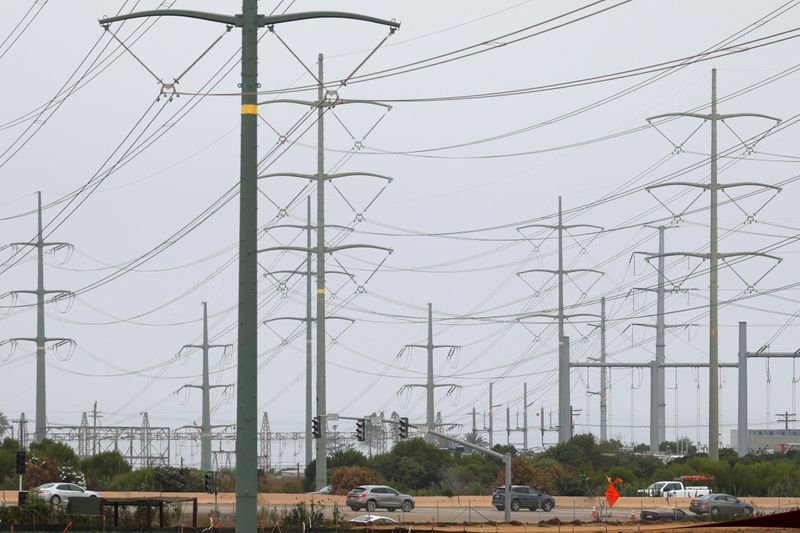By Scott DiSavino
(Reuters) - Extreme heat this summer could create energy shortfalls in California, Texas, New England and the U.S. West and Central regions, the organization responsible for North American electric reliability warned on Wednesday.
California is most at risk of power shortages this summer as the state increasingly relies on intermittent energy sources like wind and solar, and as climate change causes more extreme heat events, drought and wildfires across the U.S. West.
"California is at risk of energy emergencies during periods of normal peak summer demand and high risk when above-normal demand is widespread in the West," the North AmericanElectric Reliability Corp (NERC) said in its 2021 Summer Reliability Assessment.
Last summer, utilities in the Golden State imposed rotating blackouts that left over 400,000 homes and businesses without power for up to 2-1/2 hours when energy supplies ran short during a couple hot days in August.
That was just a sliver of California's nearly 40 million people, but could happen again this summer as utilities increasingly rely on renewable sources of energy as the state phases out power from carbon-emitting fuels like natural gas by 2045.
In response to last August's supply shortages, California utilities boosted total supplies to 63.4 gigawatts (GW), which is a slight increase from 2020, with another 3.4 GW of new resources in late stage planning for addition this summer.
Without those new resources, NERC warned the California area would only have a reserve margin of 17.6%, which is below the 18.4% target local operators consider necessary to maintain reliability. The California area includes parts of northwest Mexico.
One gigawatt can power about a million U.S. homes on averagebut as few as 200,000 during a hot summer day when consumerscrank up their air conditioners.
NERC said most of the additional resources expected this summer were solar that can provide energy only during the day but will not be available when demand remains high in the early evening.
NERC said California will rely on imports from elsewhere in the West to "maintain reliability when demand peaks in the afternoon and to ramp up even further for several hours as internal resources (like solar power) draw down."
But reliance on imports "heightens the risk that operators will need to use energy emergency alerts - and trigger the shedding of firm load (rotating blackouts) in above-normal heat conditions ... at times," NERC said.
Moreover, in addition to low reserves, California and the entire U.S. West will have to deal with heightened wildfire risk and a severe drought that has already reduced the region's hydropower output.
NERC said batteries will help meet some of California's demand this summer, but the state is only expected to have 675 megawatts (MW) of new battery systems on line at the start of the summer with another 825 MW entering service later in the summer.

Elsewhere in the United States, NERC said power supplies should be adequate to meet demand under normal circumstances but noted extreme weather events could cause shortages in Texas, the Central U.S., and New England.
In Texas, which suffered an extreme cold event in February that forced utilities to impose rotating outages, NERC said the state's increasing reliance on intermittent wind power will require operators to have more "flexible resources to cover periods of low-wind output." Flexible resources include gas-fired plants.